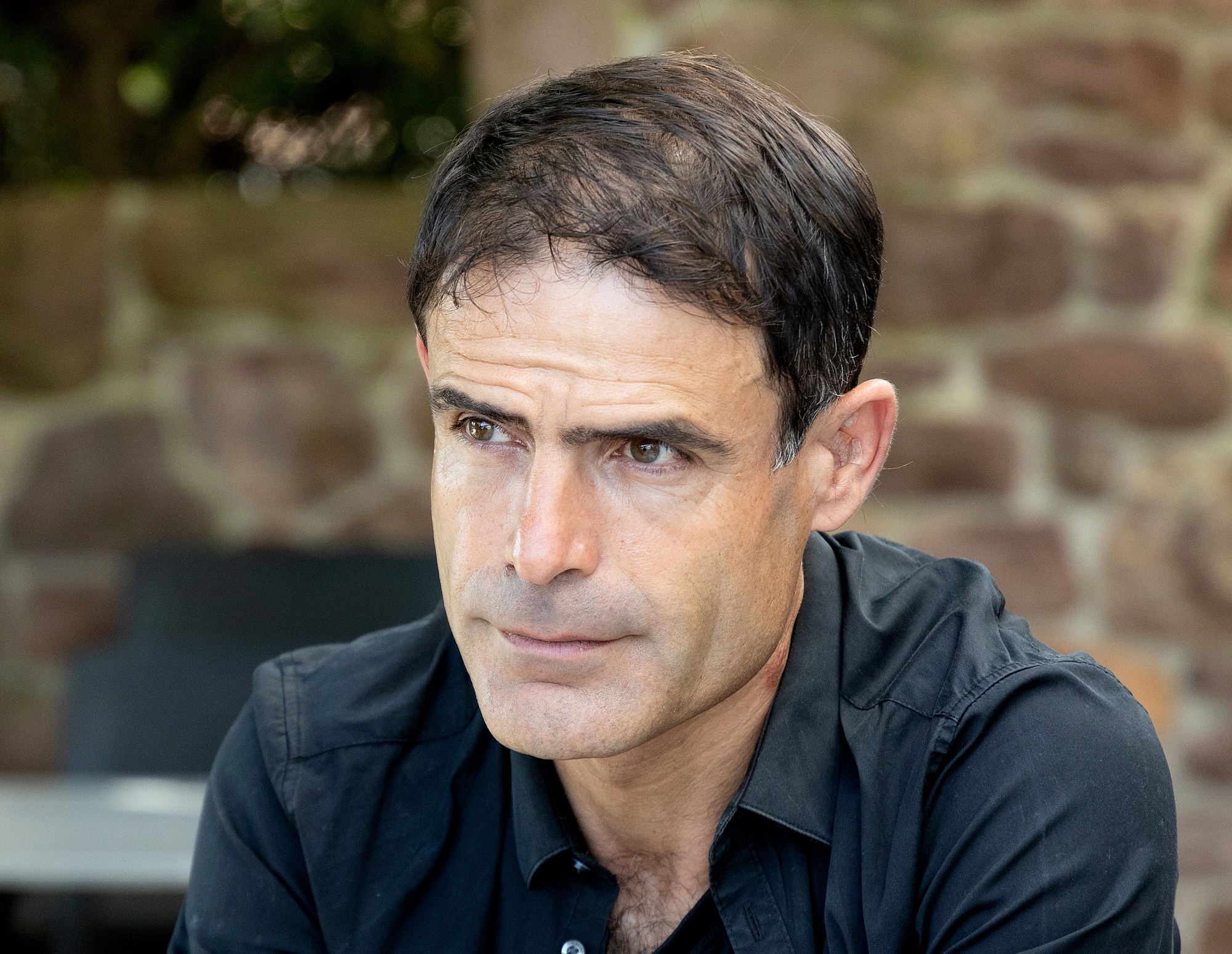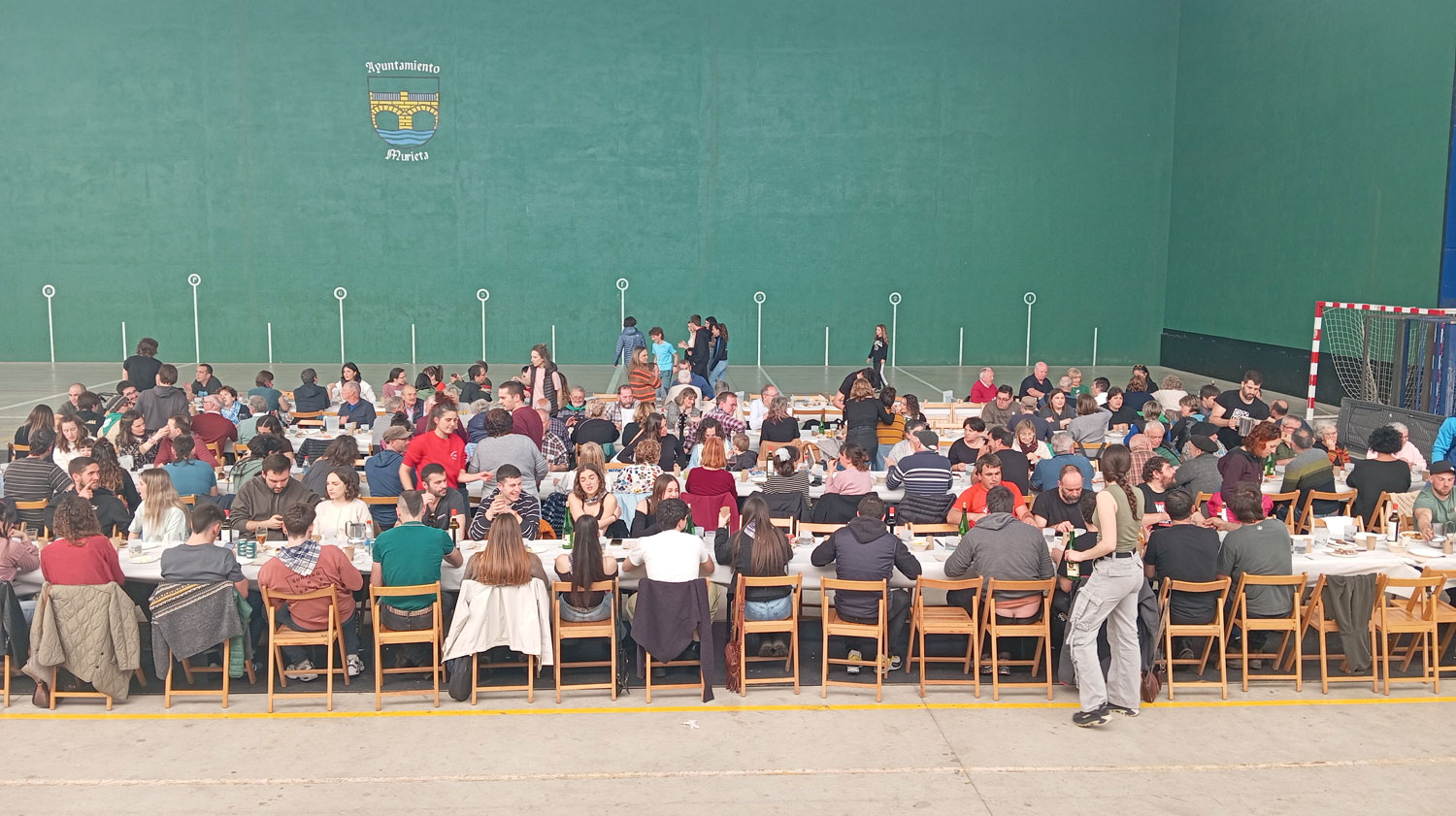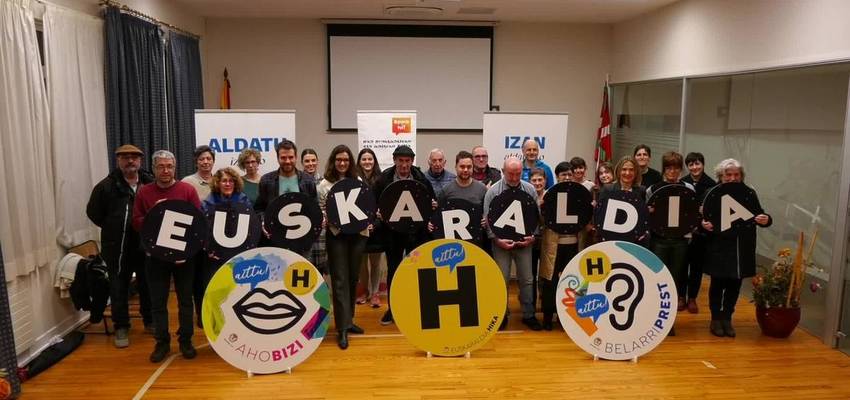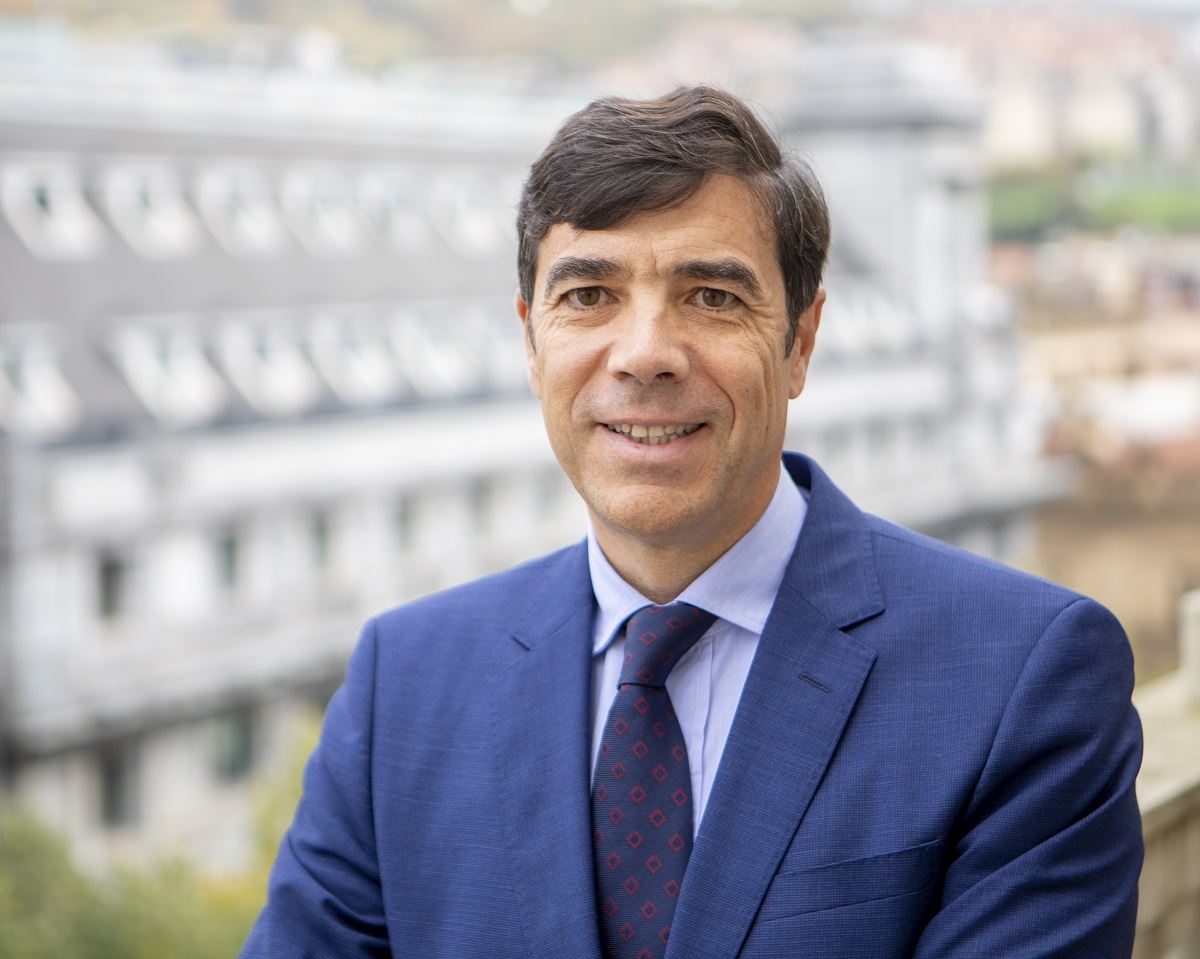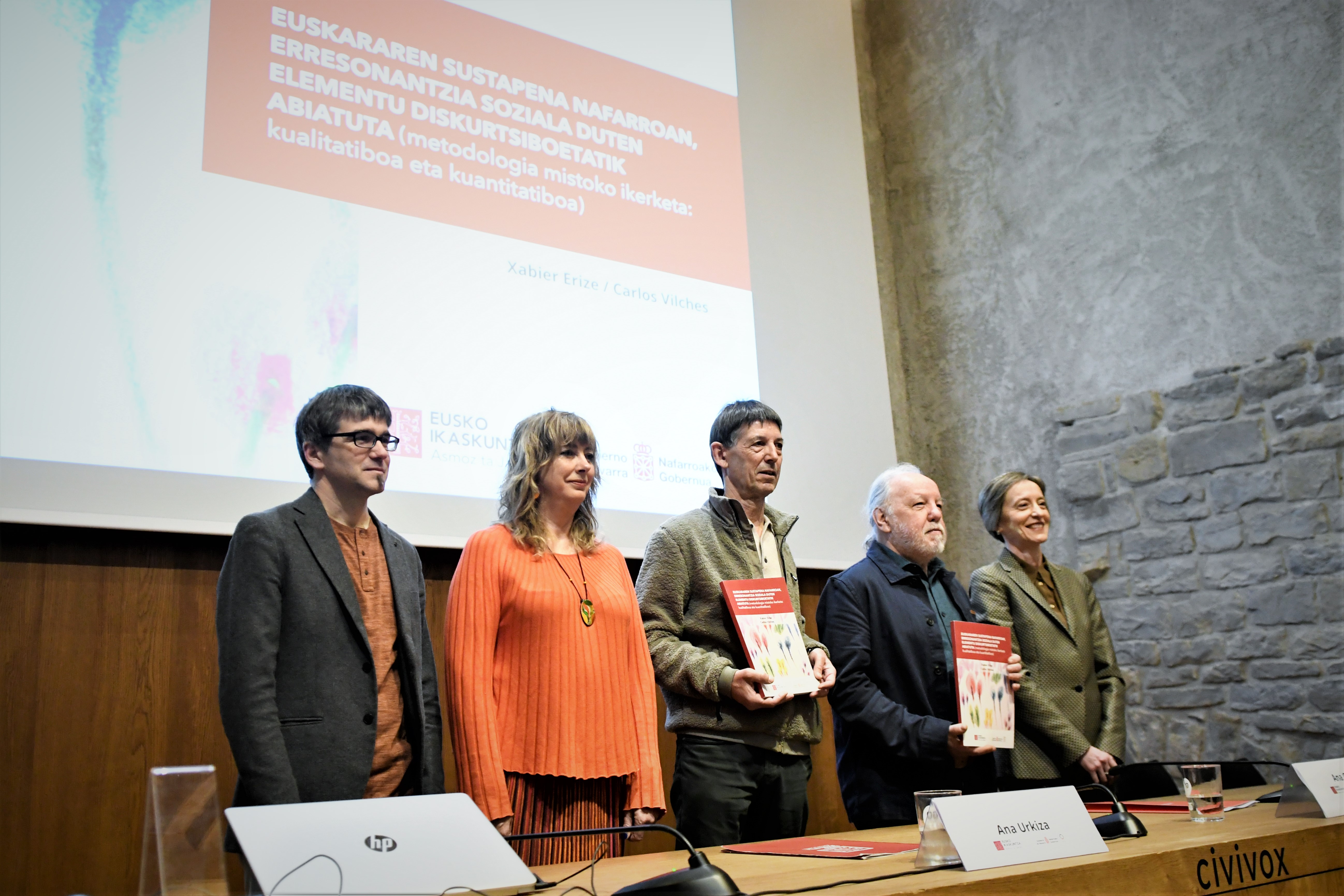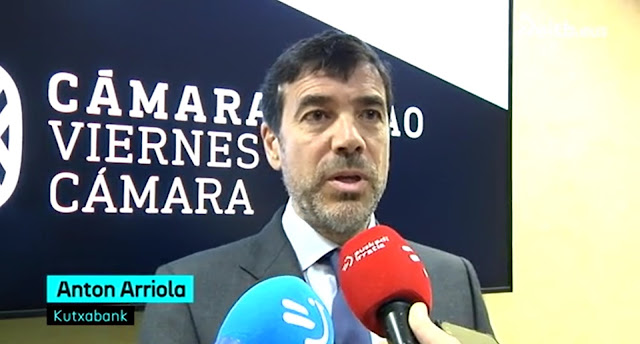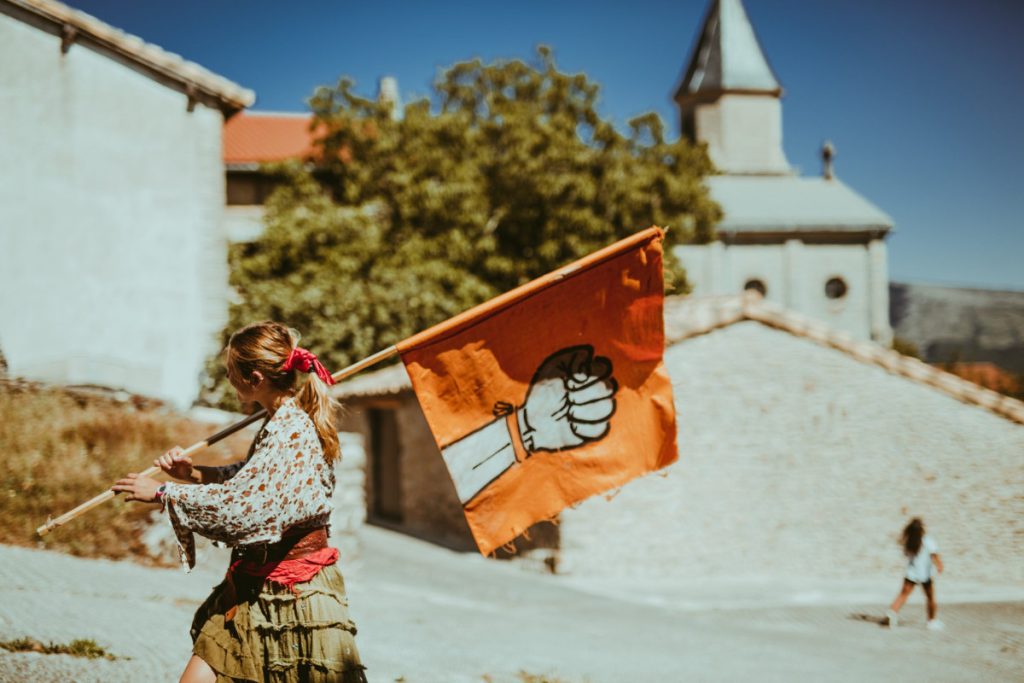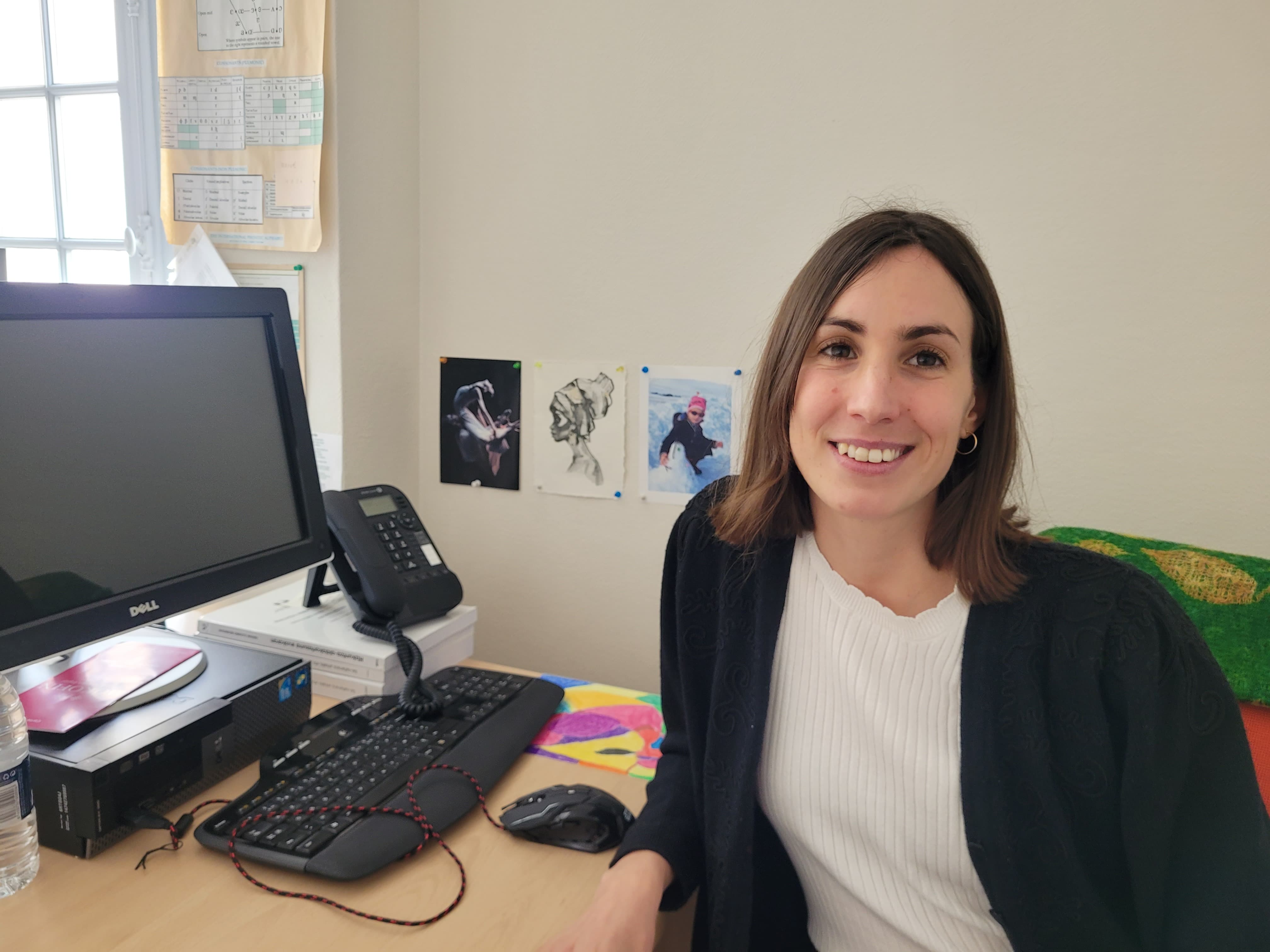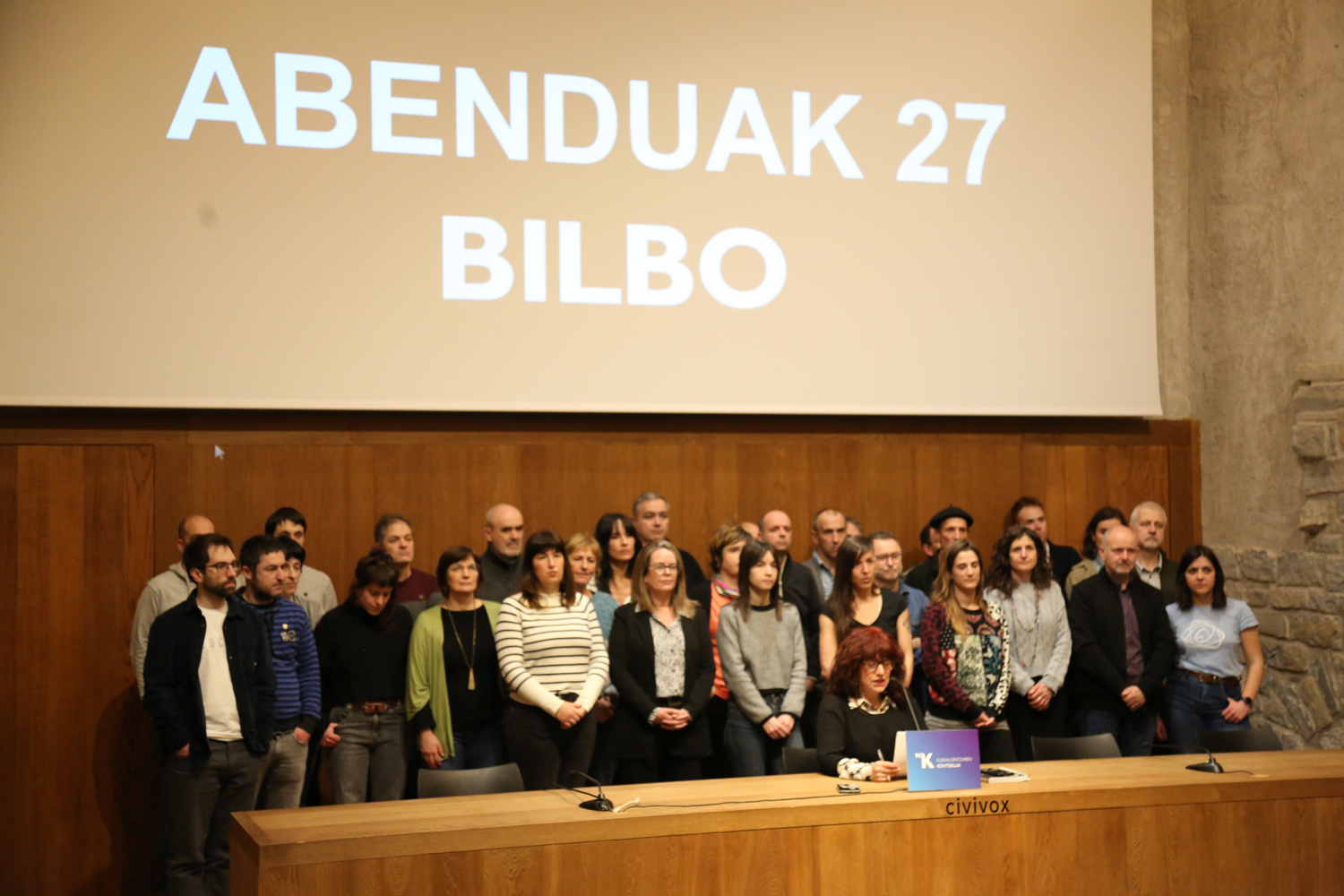"It makes me sad, but now I can say that I know more Basque than Quechua"
- He studied Child and Social Education. However, they told him that he could not be an educator without the Basque. It didn't make him graceful to be forced to learn the language. He suddenly read Amin Maalouf's book Killer Identities. It is about minority languages, so Quechua, who has not even reached it, has had the opportunity to reflect on the language. He's learning Euskera, and he's trying to get closer to the quichua.
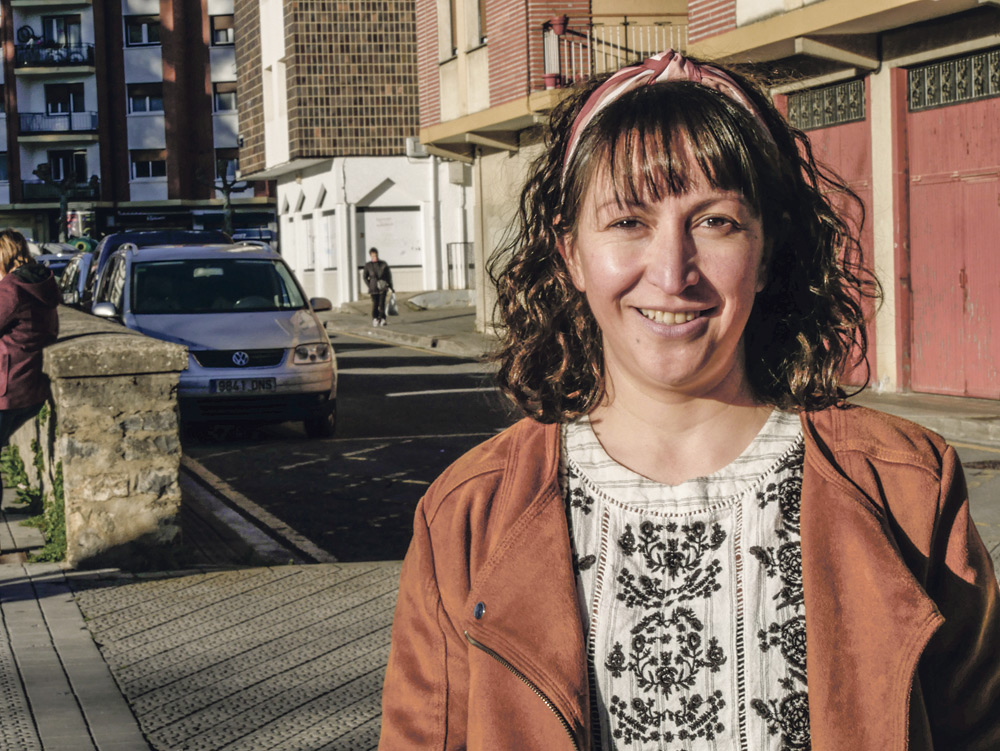
Muñoz was born in Ecuador and when he was 18 years old he emigrated to Madrid with his mother and sister. By then his father was already in Madrid, where he would find a livelihood he had not found in his hometown. Her mother sent her to Bilbao, and from there she jumped to Amurrio. He currently lives in Amurrio. She's a domestic worker, and in the last year she's approached the feminist movement.
Why did you start learning Basque recently?
I came to work at 18 years old. I started as a household employee, and today most of us are immigrant women. Little by little, I had a lot of interests and I started taking care of them, and I realized I liked it. I wanted to take a higher degree, but for that I had to validate the studies. This process is very long, you have to ask for a certificate of study in the country of origin, get here and give the value here -- it's a long time. But in the end, I got it, and I studied Bachelor's Degree in Early Childhood Education.
The thing is, being a working house, you don't have much contact with the people there, I worked for many hours, and the little time I was given free I spent studying. There I realized, when I was in internship, that here people speak another language. They told me that I would have difficulty working in a non-Euskera child education because here without Euskera you cannot work in a children's school. They asked me if I knew English, but the truth is that in Ecuador politics is a question and English is perfect because they were against the United States, it was thought that at that time those who learned that language were colonized, so I don't know English. I just know Castile.
I decided to leave that path. Life goes around a lot and I got to work in the bar. But I had a lot of pain in eating and I wanted to do something that I liked, so I signed up for Social Education. But they also told me the same thing, that I couldn't work without the Basque. But I want to work with the people I've come. They don't know Basque... but the subsidies are in Basque... At the time, it seemed to me something forced. In addition, in my surroundings, in the spaces that moved me in Bilbao, no one spoke to me in Basque, so I did not see it necessary. I didn't feel that motivation. Until I read the book Killer Identities of Amin Maalouf. The author speaks of minority languages. So I started to connect with our language, I asked my mother, why don't you speak Quechua? “Well, at that time, you know...” started. In Ecuador I have walked through many places, there is talk of Quechua, but in very few places only local people from specific regions do. I am sorry, but now I can say that I know more Basque than Quechua. I know two or three words, nothing else. I've seen that in Basque and with Quechua there are words that have the same meaning, really curious!
So, that's when I started feeling like learning, it wasn't for work, it's a big challenge, and I didn't want to make that investment for a job, I wanted to learn for myself. I cannot recover Quechua, but the Basque language, I think, is a language that needs to be recovered, for all that it means. So I started learning Basque.
"Euskaltegi is very expensive. It is true that the City Hall gives you the money, but for that you have to appear to 80% of the classes, if for anything you cannot appear it is difficult to fulfill.”
Is the Basque learning process easy?
In my opinion, in my view, the Basque Country is very cold. In the learning model it is true that there are speech practices, but not all the culture that Euskera brings is included. It is also very expensive, it is true that the City Hall gives you the money, but for that you have to appear to 80% of the schools, if for anything you cannot appear it is difficult to fulfill. I, for example, knew that they would not give me the money, because I could not always show up, because I work for my morning, afternoon and night, that investment I made for myself, I knew that those 560 euros were not going to give me back. So I think it's expensive, I don't think there's any motivation. Yes, you can sign up at EPA, but the timetables aren't good, and when you take a little level, it goes very slowly. I don't know, this year I wanted to sign up for AEK but there are very few schedules, I needed the initial level and in Amurrio and Llodio is not, only in two Euskaltegis in Bilbao.
I really like Euskera, I'm learning more and more, where it comes from, I really like songs. Mikel Urdangarin, Zea Mays, Itoitz -- I don't know what they're saying, but they get inland.
However, I think something is missing. There are groups like Berbalagun, but once I tried to participate in it and... I didn't know anything! I take into account that it is my limit, which I dare not speak in Basque. In the Feminist Group I have been in three sessions, those in Euskera, they have returned to me, but it seems that it is a hindrance, the dialogue is reduced. I don't always want to ask, they're always willing to help, to come back, but it's not easy. I have to follow my level to communicate more easily for a while.
You have been talking about the...
I think it's something we have in common with Euskal Herria and Ecuador. Colonialism established a language in Ecuador. In this case, Spanish was imposed on us and today it speaks 99%, we are taught in school. Only recently, in 2004 minority languages began to be valued, there are 14 spoken languages in Ecuador, but some are used very little. The supported languages are Spanish, compulsory language, Quechua language and xoar language. It is mainly spoken in the Xoar Amazon, while Quechua is spoken more in the Amazon and in the mountains.
"I'm trying to do something to recover Quechua, because you don't lose a language, you lose an entire culture."
I do not know what the process would be like here, there were very few people speaking and the effort that has been made here was not made. This is compulsory for all administrative matters, but there is also a limit. In Ecuador, for example, my great-grandparents didn't speak and they were from a very small town. Speaking frankly, there were also signs of racism towards those who spoke Quechua among us.
Kichu and ketxu are not the same, ketxu is the language spoken in South America and kichu is a variant of it. They tried to go back to Ecuador, some Vatican priests tried to write Quechua, tried to get the alphabet out, there are many ways to write, with q, with k... it was an imposition of fragmentation of our language and they got it. There are now a number of movements that are slowly recovering the language, thanks to the peasants and indigenous people, who are struggling to regain it. I trust that you will succeed.
To be honest, I know very few words, but out of curiosity. In school it is not taught, it is not taught as here, at least in school, even if it is in model A if you have a subject. There, neither the trunk, nor the optional lesson, has been discarded. What I know I've learned by myself.
Here in Orduña, I have compatriots from an area where there is talk of Quechua, of Otabalo, and sometimes I ask them the words, I say: “I want to learn, to show.” I try to do something to recover it, because you don't lose a language, you lose a whole culture. There are many words that are different from the meaning of Spanish, but the forgotten ones and also in school they tell you that they are not. Here, at least, if you don't know Basque, some words are also used: hello, agur, zelan?. In Ecuador it is not, it is completely ruled out, there are even signs of illiteracy. My mother knows more than my father a few words.
This
item has been brought from the media Aiaraldea.eus thanks to the Creative Commons BY-SA 3.0 license. The original interview is longer and the interviewee has talked about her trajectory in feminism, in addition to linguistic issues. Full interview Aiaraldea.eus: “Feminism has helped me to become aware of my rights as domestic workers”
Aberri Eguna elkarrekin ospatzeko xedez sortu zen Euskal Herria Batera plataforma. Aurten, ikusgarri bat eskainiko dute apirilaren 11n, Manex Fuchs antzerkilariaren, Lorea Agirre idazlearen eta Martxel Rodriguez dantzariaren eskutik.
Gozamen aparta bezain deskribatzeko zaila dakar, norbaiten hitzak irakurri edo entzun ostean, zera pentsatzeak: “Horixe zen neu aurreko hartan azaltzen saiatu nintzena!”. Idazlea eta itzultzailea da María Reimóndez, eta galegoz aritzen da, hizkuntza... [+]
From linguistics or glotophobia and, of course, hatred against Basque, we have often seen our Basque become the dandruff of all sticks. Last of all, the president of Kutxabank, Anton Arriola, has been shaking our language and giving us galantas.The President of Kutxabank,
... [+]
Don't make a fuss, don't confront, don't victimize... and obey. As oppressed subjects, in this case as Basques, we talk, how many times have we had to listen to them? Ironically, two years ago, at the Euskalale Independentiston Meeting, Esne Arzallus said: "We have arrived here,... [+]
Euskal hizkuntzalaritza esperimentaleko katedra berria estreinatu dute Baionako fakultatean.
Bilbon eginiko aurkezpenean iragarri dute ekitaldia, euskarari "arnas berri bat emateko eta behar duen indarraldia gorpuzten hasteko" lehen urratsa izango dela nabarmenduta. Euskaltzale guztiei, baina, oro har, "justizia sozialean eta gizarte kohesioan aurre... [+]












